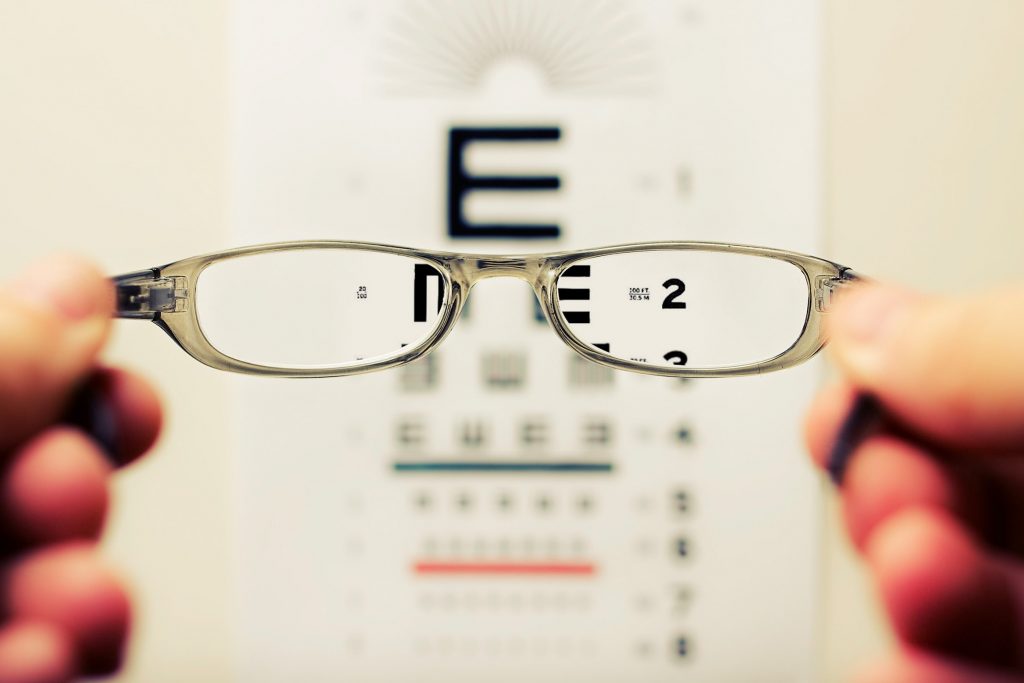As a parent, you only want to do what is best for your child. You want to make sure that she is safe and healthy. You faithfully bring her to her doctor well-child visits, and you’re certain to make her a dentist appointment at the appropriate age. But what’s often overlooked is an appointment with an optometrist for a comprehensive vision test.
Making Proactive Vision Appointments
Consider making an eye appointment for your daughter before you see concerns.
Parents don’t always know when they need to start bringing their children to the eye doctor for regular exams. Some parents look for signs, such as their child holding books or electronic devices close to their eyes, squinting to focus, and/or if their child is constantly complaining of headaches. If a child is struggling to see the board at school, parents aren’t in the classroom to notice it, and if the child doesn’t speak up, her teacher may not notice as well.
Consider making an eye appointment for your daughter before you see concerns. Often, if a child is struggling with school, or her grades have been slipping, it could be the result of her struggling to see. Sometimes when we notice that our child is performing poorly, as parents, we start speculating on potential causes, such as a learning disability. Often the last thing on our mind is her vision.
It is very important to bring your child to an optometrist for a regular vision test. Young children don’t always know how to explain what is going on with their eyesight. If it has been going on for a while, they may not know any different. Not enough school children are actually getting their vision tested. One in three students has gone to the eye doctor for an exam in the past two years or even longer. This means that there are many school children out there who may be dealing with undiagnosed vision problems.
Common Vision Problems Amongst Children
Almost 42 percent of Americans are nearsighted. If your child is struggling at school, there is a good chance that she falls into that category. Other possible vision problems include farsightedness and astigmatism. Some school children also have difficulties with eye focusing, eye tracking, and eye coordination. When these issues occur, they are very apparent in both school and sports. About nine percent of children between the ages of five and 17 years old are nearsighted. Thirteen percent of children between the ages of five and 17 years old are farsighted. With astigmatism, there are different diagnostic thresholds used. Somewhere between 15 and 28 percent of children between the ages of 5 and 17 years old have astigmatism. All of these common vision problems are very prevalent in school-aged children, which is why it is so important to have children’s eyes checked regularly.
It’s not uncommon for school age children to need to wear glasses, especially recently. One school nurse, Carolyn Amberry, has been working at Long Beach Unified Schools in California for 17 years. She has seen an increasing number of students who have needed glasses in recent years. She said that, at Lincoln Elementary, “I couldn’t believe at a school of 1,200 kids, I had more than 300 needing glasses.”
When to Visit the Eye Doctor
Even children who have 20/20 vision need to go to the eye doctor for a vision test regularly. People with 20/20 vision can still have other problems with their eyesight. As mentioned before, eye tracking, eye focusing, and eye coordination may be affecting your child’s school performance, even if they have 20/20 vision.
According to the American Optometric Association, students should go to the eye doctor every year before school starts. If your child is at risk for developing a vision problem or has one already, those exams should be more frequent. You should take your child for their first eye exam at the age of six months. Then, they should go back when they are about three years old. Children’s prescriptions do change often when they are young, so it doesn’t hurt to take them for a vision test more frequently.
According to the American Optometric Association, students should go to the eye doctor every year before school starts. If your child is at risk for developing a vision problem or has one already, those exams should be more frequent.
With so many Americans, both children and adults, struggling with vision problems, it’s best to make sure that your child’s vision is tested regularly. Getting her the glasses or vision therapy that she needs can make a difference in her everyday life, but it will especially help her to succeed in school.

